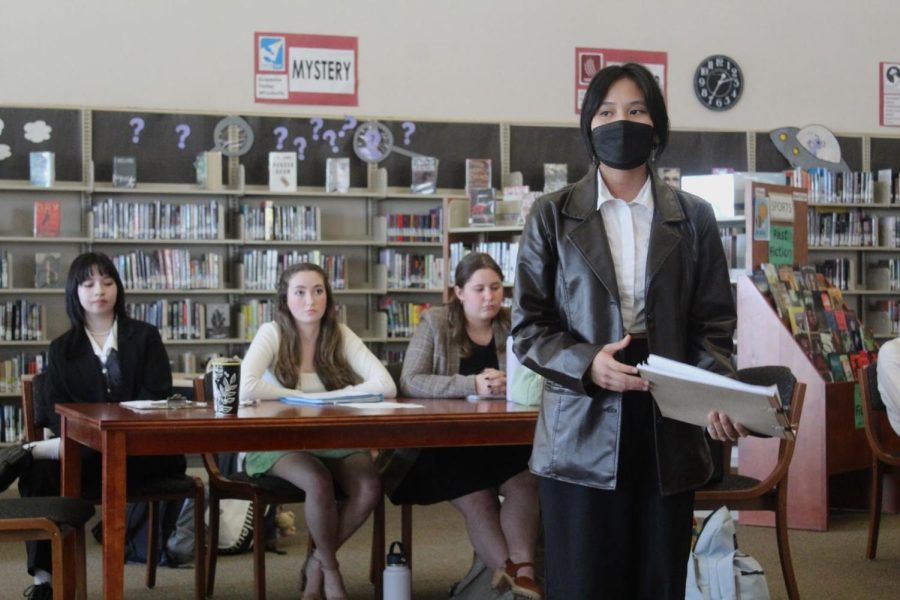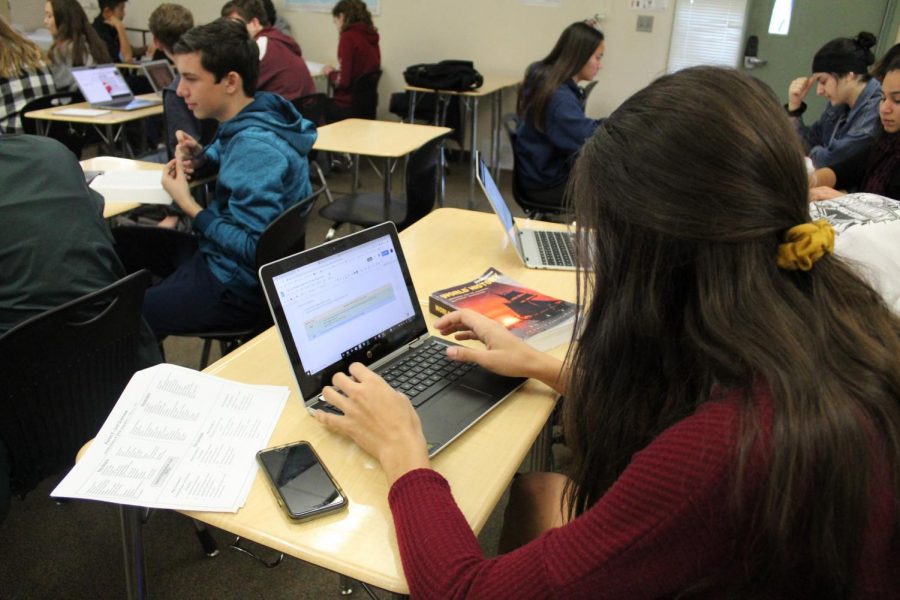All throughout the testing room, students’ pencils furiously move across the page. Answers are bubbled and then erased, unsure of what the possible answer out of four could be. Stimulus is skimmed, College Board jargon is deciphered and weeks of studying boil down to getting one question right or wrong all as the clock goes tick, tick, tick. For many, this is the familiar environment during the second and third week of May in which AP exams are administered. Yet, the days of bringing #2 pencils and black and blue pens might be over, after College Board announced nine exams are becoming digital.
Since 1952, AP Exams have been optional for AP students to take at the end of each AP course that can give them possible college credit. Starting next year, nine AP exams will be going digitally. Across campus, students and staff weighed in their opinions about the possible downsides or benefits of this change.
Guidance Counselor Mrs. Roisin Leroy is one of the four counselors on campus, and is one of the staff who runs the flow of the AP exams on campus.
“I think the way it will help students is that for [AP exams that require a lot of writing], I think that it will help students not have to write as much and be able to type and [not] get hand cramps from writing,” Guidance Counselor Mrs. Roisin Leroy said. “I know it’s going to be the way of the future that all assessments will be [digital], and I think throughout the years, it’s going to be gradual for AP.”
According to College Board, AP African American Studies, AP Computer Science Principles, AP English Language and Composition, AP English Literature and Composition, AP European History, AP Psychology, AP Seminar, AP United States History, and AP World History will all be going digital this next school year.
“I do [like] how AP exams are going digitally next year, because I think a lot of people, including myself, type faster than they write and you’re able to delete things,” Cate Jamison said. “I’m [upset] that they didn’t do it this year because I feel like it’s going to benefit students, but it’s also nice because next year students get to actually type things out and don’t get hand cramps like before.”
Jamison is a sophomore AP World History student and will take her AP exam in May. 15 at 8 a.m. With the positive benefits coming from an AP test taker, staff also have the benefit which is the improvement with economic and environmental problems.
“I think why the College Board is doing them is because it’s a lot of work to ship boxes of AP exams to schools and for schools to send them back,” Leroy said. “With [the shipping of the tests], sometimes exams get lost in the mail or when they get to the center for grading them they get lost through there too, so I think [College Board hopes] that digital exams will cut that whole process out with having to worry about shipping them out and shipping them back without any mistakes.”
Even with the various perceived benefits that come alongside with the nine AP exams going digitally next year, some have doubts about the actual positive impact, like Mrs. Katie Staggs.
“I don’t think it will harm students, but I don’t know that it will help them either,” Staggs said. “There is a lot of science behind the benefits of writing things down over typing them. Writing forces us to organize our thoughts in a way that typing does not. Handwriting also engages more regions of the brain because it requires us to use our visual processing centers. However, I think making the exam digital might help students complete the written sections faster, not that our brains work faster while we’re typing but the mechanics are less taxing than handwriting for most.”
Even as individuals weigh the positives and negatives of this switch, a question remains: how will the wifi network hold up to a high volume of people taking these exams? Further, how will laptop distribution work?
“I am not 100% sure how the distribution will work, but the chromebooks in the library will most likely be distributed for the AP exams,” Leroy said.
“The one thing [I am most] concerned about is the school being able to support [all] the students wifi and maintain it, because the exams are so important,” Leroy said. “If the wifi goes down for a day or for a period of time, what does that mean for us? Do we have to reschedule the [exams] or cancel the exam and start over.”
by GAVIN ROEKER




